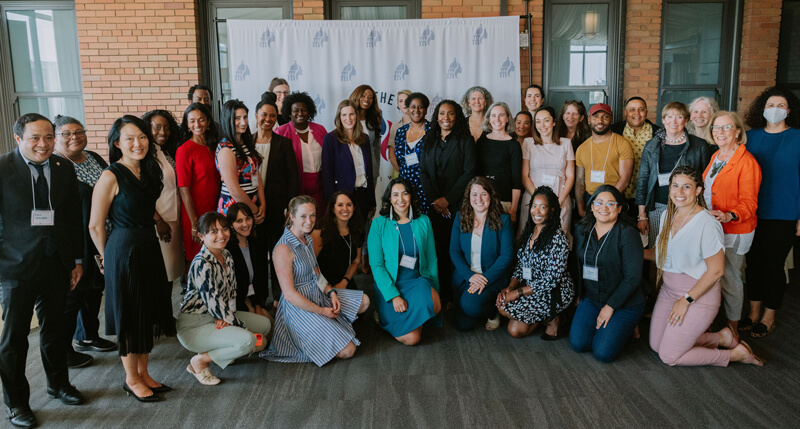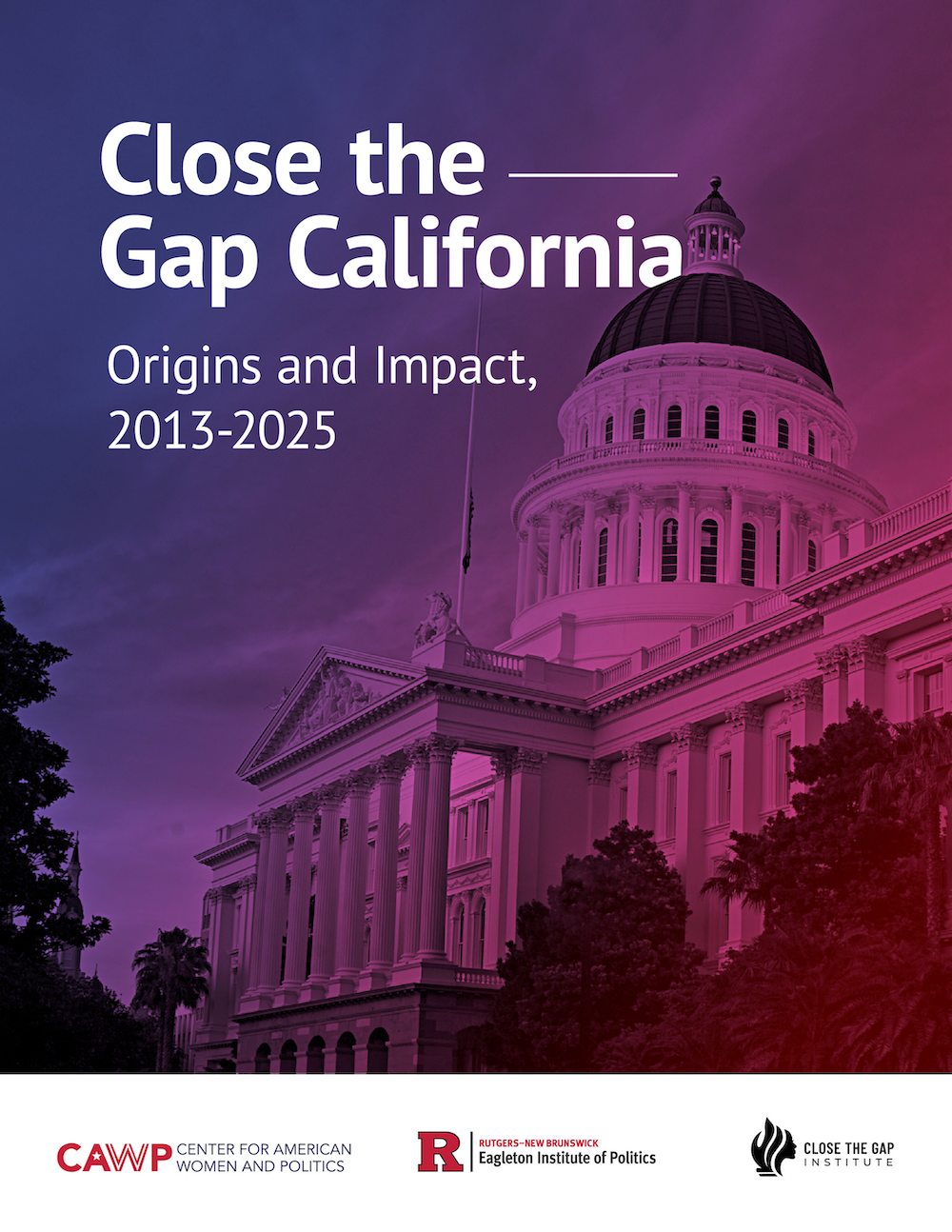We’ve partnered with the Center for American Women and Politics (CAWP) at Rutgers University, the nation’s leading research institution on women in politics, to evaluate the impact of our targeted recruitment strategy. Quantitative analyses and qualitative interviews reveal how CTG has accelerated gains for women in the California Legislature, creating a model that can be replicated nationwide.
California stands at the threshold of becoming the first top-ten global economy to achieve gender parity in its legislature.
We’re actively investigating how to ensure the racially reflective, powerful parity we’re building in California endures for the long term, and how the recruiting model we’ve deployed here might be adapted to accelerate similar progress beyond the California Legislature.
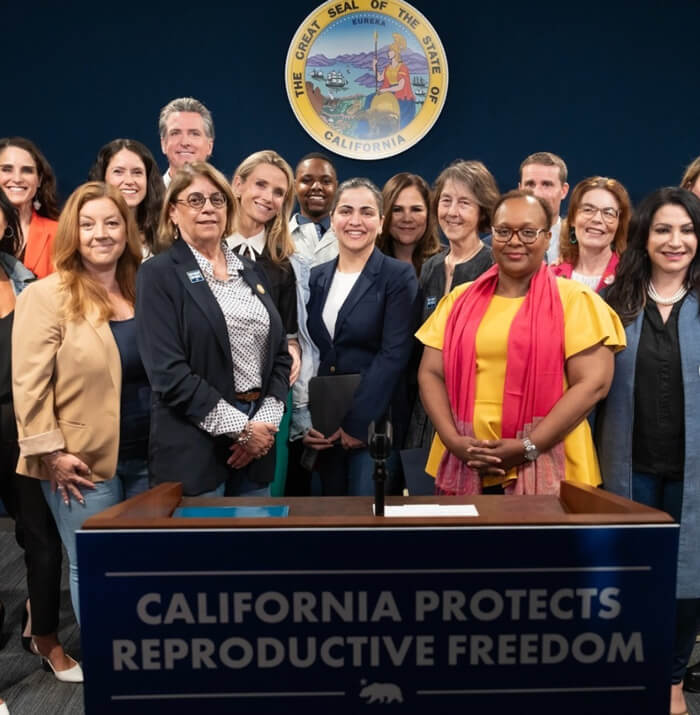
The May 2024 passage of SB 233 allowing Arizona doctors to provide abortion care to Arizona patients in California was a priority for the Legislative Women’s Caucus, including pictured Close the Gap legislators Majority Leader Cecilia Aguiar-Curry, Senator Aisha Wahab, and Assemblymembers Lori Wilson and Dawn Addis.
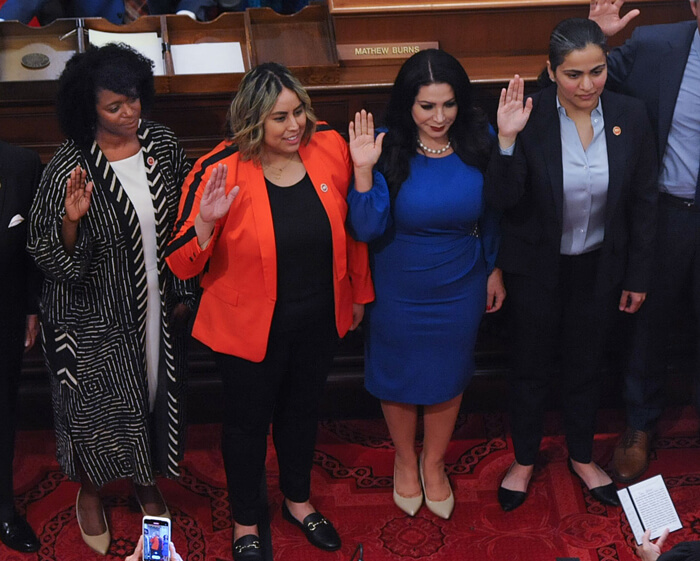
Close the Gap Senators Lola Smallwood-Cuevas (left), Caroline Menjivar (second from left), and Aisha Wahab (right) are sworn into office in 2022.
Top Research Findings
Since CTG’s launch in 2013, the number of Democratic women elected to the 120-member California Legislature has increased by 104.3%.
The 25 women legislators we have recruited account for over 50% of all Dem women in the legislature today. They are racially reflective of the state, lead with progressive values, and wield growing influence as they take on leadership roles.
In today’s legislature, CTG legislators represent:
43.1% of all women
27.8% of all Democrats
66.7% of Black Democratic women and 50% of all Black Democrats
47.8% of Latina Democrats and 32.4% of all Latino/a/x Democrats
They hold 30% of the majority leadership positions in the Assembly and 25% of the majority leadership positions in the Senate.
Close the Gap’s work has contributed to representational gains for Democratic women that have quite literally closed the gap with men both among their party’s officeholders and across the legislature… Democratic women’s representation has increased in both the state Assembly and state Senate by number, percentage of chamber, and percentage of party caucus from 2013 to present.
CTG has recruited 82 women to run in 89 state legislative contests – and counting!
They reflect the diversity of California’s population*:
- 9 are Asian American/Pacific Islander
- 19 are Black
- 29 are Latina or Hispanic
- 3 are Middle Eastern/North African
- 28 are white
- At least 14 identify as LGBTQ+
*Women who identify as more than one race (6) are included in all groups with which they identify.

Close the Gap Assemblymember Eloise Gómez Reyes distributing community resources early in the COVID-19 pandemic in 2020.
As the number of CTG women increases and they represent larger proportions of party and chamber membership, their potential to both access and exercise institutional power and influence grows.
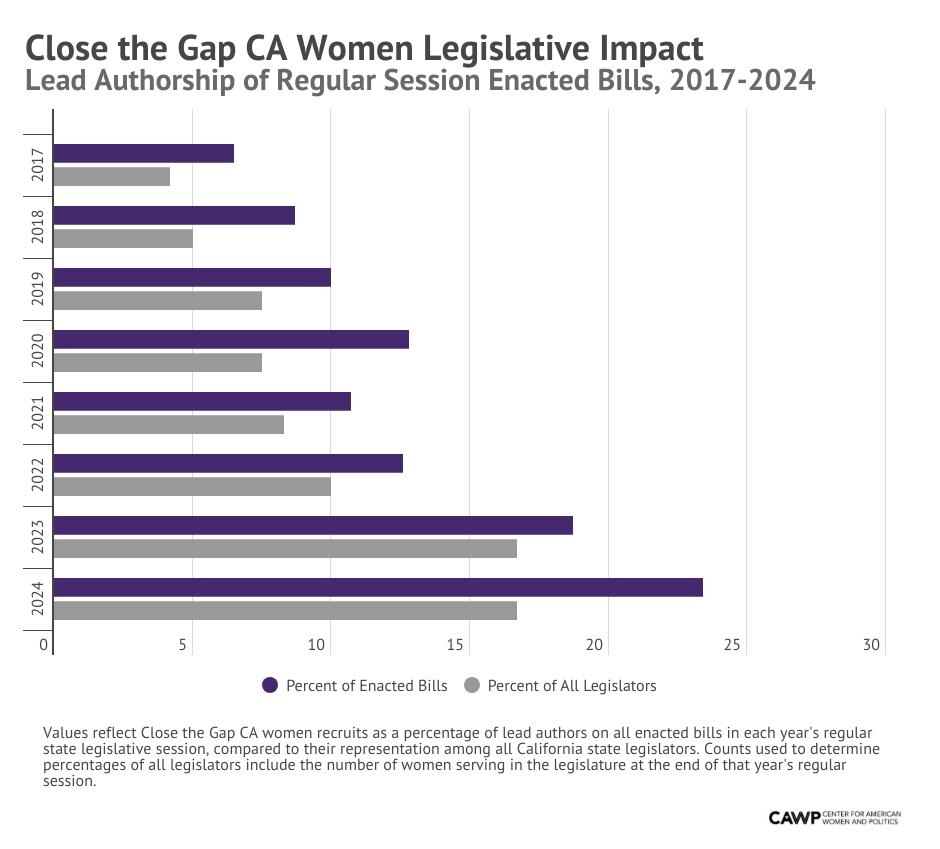
CTG legislators have an outsized impact, as they have outperformed their numbers in bill sponsorship and passage.
